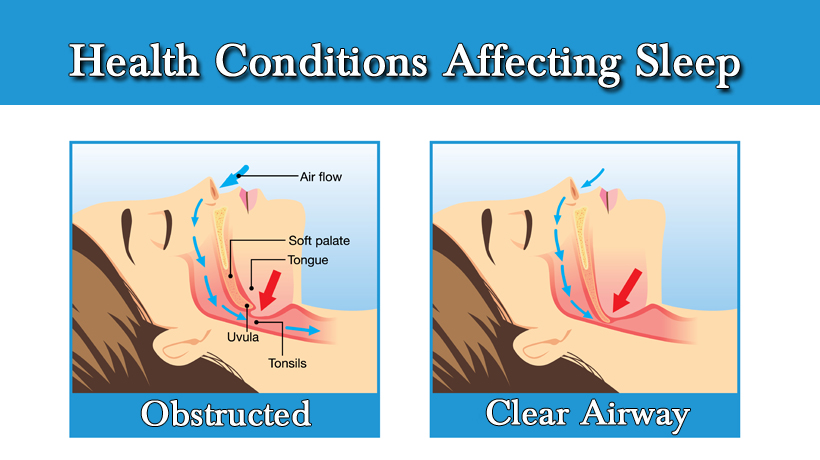Some nights, it’s easier to fall asleep than others. However, when not being able to get your shut eye becomes a nightly occurrence, there may be an actual health concern to look out for. Here are some signs that your struggles to get your rest may be the result of an underlying health issue:
GERD
If you’re struggling to fall asleep in under 20 minutes, it might be a sign that you have gastroesophageal reflux disease (GERD). According to Journal Watch, which reviews scientific journals, sleep deprivation can also increase the severity of GERD. GERD can cause heartburn which in turn makes it difficult to fall asleep. US researchers did a randomized control trial (RCT) that tested 10 healthy controls and 10 GERD patients. GERD patients reported having heartburn at least twice a week. Regarding the GERD patients, those who had enough sleep didn’t have as much heartburn as those were sleep-deprived.
Sleep apnea
Sleep apnea can be another condition if you are struggling to fall asleep. According to WebMd, sleep apnea arises when a person’s breathing is interrupted during sleep. Sleep apnea is dangerous because people can stop breathing repeatedly throughout sleep because the brain and body are lacking oxygen.
Obstructive sleep apnea is the more common form of sleep apnea, according to WebMD. It occurs when there is a blockage in the airway, the soft tissue in the back of the throat. For the muscles to breathe the brain sends a signal; however, in central sleep apnea, the brain fails to give the signal because of the instability in the respiratory system.
Asthma
Asthma is an airway disease due to a chronic lung condition, as stated by the National Sleep Foundation. When the airway becomes inflamed and tightens, it makes it difficult to breathe. The National Sleep Foundation also discusses how those with asthma struggle to fall asleep due to night coughing, wheezing, and breathlessness that interrupts their sleep. Many people with asthma show their first symptoms during sleep.
Vitamin deficiency
Vitamin deficiency can be another reason for lacking sleep. According to VerywellHealth vitamin deficiencies can cause different neurological disorders. There is research that suggests that there essentially may be a correlation between people who take vitamins and insomnia. However, it isn’t clear whether the vitamins are the one causing the worsening of sleep or if people who sleep poorly are looking for aid in vitamins. Vitamin D deficiency is common and has been implicated for poor sleep. However, it is said to be unlikely that a vitamin replacement will help the disorder.
Anxiety
Stress and anxiety can be the cause of sleep problems and one may have an anxiety disorder that worsens the issue. According to the American and Depression Association of America, sleep disorders interfere with physical, mental, and emotional functioning and can bring in a variety of problems. Anxiety can lead to sleeping problems, and inversely, sleep deprivation can lead to an anxiety disorder. Research shows that in different psychiatric disorders, sleep deprivation is present in almost all disorders. People who have chronic insomnia are also at high risk of developing an anxiety disorder.
Arthritis
Arthritis is an autoimmune disease that causes inflammation throughout the body, states the Arthritis Foundation. This leads to feeling fatigue because the inflammation remains for so long. The fatigue may be triggered by insomnia. Trying to get comfortable or staying asleep becomes difficult when one’s joints are swollen and sore, which leads to issues such as sleep apnea.
Sources:
https://www.jwatch.org/jg200802080000005/2008/02/08/does-sleep-deprivation-worsen-gerd-symptoms
https://www.webmd.com/sleep-disorders/sleep-apnea/sleep-apnea
https://www.sleepfoundation.org/articles/asthma-and-sleep
https://www.verywellhealth.com/can-vitamin-deficiency-cause-insomnia-3014720
https://adaa.org/understanding-anxiety/related-illnesses/sleep-disorders
https://www.arthritis.org/living-with-arthritis/pain-management/fatigue/fatigue-and-arthritis-pain.php



